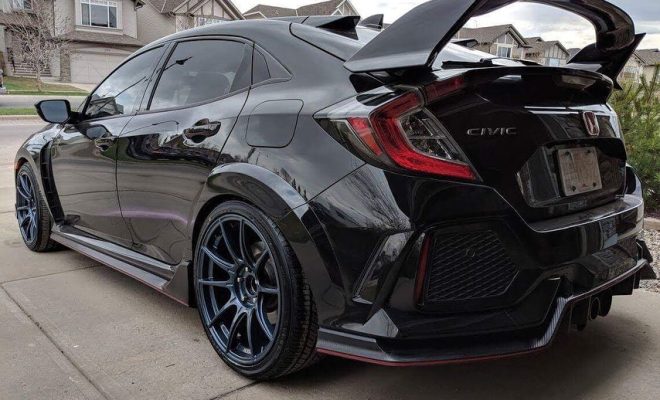Turning Metal into Money: Expert Guide to Vehicle End-of-Life Value

Understanding the scrap value of car ownership is essential knowledge for any vehicle owner in Singapore, where strict regulations create a predetermined lifecycle for every automobile on the road. The city-state’s unique approach to vehicle management transforms what might elsewhere be a sad journey to the junkyard into a carefully regulated financial transaction with significant implications.
Singapore’s Distinctive Approach
The regulatory framework governing vehicle disposal in Singapore differs markedly from most global systems, creating a distinctive marketplace with clear parameters:
- Mandatory vehicle retirement after ten years (unless COE renewal is purchased)
- Strict environmental compliance requirements for all authorised disposal facilities
- Precise deregistration procedures that must be followed meticulously
- Rebate systems that can substantially affect final settlement figures
“Singapore has effectively transformed vehicle ownership from an open-ended relationship to a precisely defined lifecycle with clear beginning and end points. This predictability creates both constraints and opportunities for the informed vehicle owner.”
This regulatory environment establishes the context within which all disposal decisions must be made, and a thorough understanding is essential for optimising financial outcomes.
Valuation Determinants
The factors influencing your vehicle’s end-of-life value comprise a complex interaction of market forces and vehicle-specific characteristics:
- Current international prices for recyclable metals (steel, aluminium, copper)
- Vehicle weight and material composition
- Condition and salvageability of key components
- Remaining PARF rebate eligibility
- Age and completeness of the vehicle
These factors are not static but fluctuate with global commodity markets and regulatory schedules, creating a dynamic landscape that rewards strategic timing and informed decision-making.
Environmental Considerations
Beyond pure economics, Singapore’s approach to vehicle recycling reflects sophisticated environmental consciousness:
- Hazardous materials containment to protect limited water resources
- High-efficiency metals recovery systems
- Specialised protocols for handling batteries and electronic components
- Fuel and fluid recovery and proper disposal
- Parts reuse programmes to extend component lifecycles
“The Singapore system represents not merely regulatory compliance but a comprehensive commitment to environmental stewardship, balancing economic realities with ecological necessities in a manner few other jurisdictions have achieved.”
This environmental dimension adds both requirements and value to the disposal process, ensuring vehicles are processed responsibly while maximising resource recovery.
Navigating the Process
To extract maximum value from your end-of-life vehicle, following a structured approach is essential:
1. Research current scrap metal prices and market conditions
2. Gather all vehicle documentation including registration and service history
3. Obtain multiple quotations from authorised disposal facilities
4. Verify rebate eligibility and calculation
5. Complete all deregistration requirements precisely
Each step carries the potential for value optimisation or loss, depending on how thoroughly it is executed. The attention to detail that might seem excessive in other contexts becomes financially significant in Singapore’s precise system.
Timing Considerations
The when can be as important as the how in vehicle disposal decisions:
- Metal price cycles affect baseline scrap values
- COE expiration timing influences optimal disposal dates
- Monthly quotas can affect processing capacity and pricing
- Market demand for specific parts fluctuates seasonally
- Regulatory changes may create temporary arbitrage opportunities
This temporal dimension adds complexity but also opportunities for those willing to monitor conditions and time their decisions strategically.
Component-Level Value
Beyond the base metal value, vehicles contain numerous components that may hold independent worth:
- Catalytic converters contain valuable precious metals
- Electronics modules may have a secondary market value
- Undamaged body panels can be sold separately to parts recyclers
- Well-maintained mechanical components may fetch premium prices
- Recent replacement parts often retain significant value
Selective dismantling and separate sales of these components can sometimes yield significantly higher returns than processing the entire vehicle as a unit, particularly for premium or uncommon models.
Technological Transformation
Digital innovation continues to reshape the vehicle disposal landscape in Singapore:
- Online valuation platforms offer instant estimates
- Digital documentation systems streamline the deregistration process
- Electronic tracking ensures regulatory compliance
- Data analytics optimise dismantling and recycling processes
- Mobile applications connect owners directly with multiple disposal facilities
These technological advancements create transparency and efficiency that benefit informed vehicle owners who leverage these tools effectively.
Strategic Approach
Approaching vehicle disposal with the mindset of an investor rather than a consumer can substantially impact financial outcomes:
- Maintain detailed service records throughout the vehicle lifecycle
- Preserve original components when possible
- Time disposal based on market conditions when flexibility exists
- Understand the specific value drivers for your vehicle model
- Treat the process as a significant financial transaction deserving of due diligence
This strategic orientation transforms what many consider an inconvenient necessity into an opportunity to recover maximum value from a depreciating asset.
The Final Analysis
As your vehicle approaches the end of its regulatory lifespan in Singapore, the disposal process deserves the same careful attention you might give to any other significant financial transaction. The combination of regulatory knowledge, market awareness, timing sensitivity, and process diligence transforms a bureaucratic requirement into a manageable financial transaction with optimisable returns.
The system’s predictability, while initially appearing constraining, actually creates opportunity for strategic planning that wouldn’t be possible in less structured environments. By treating your vehicle’s end-of-life as a financial transaction deserving of proper attention rather than a mere inconvenience, you position yourself to maximise the potential scrap value of car ownership in Singapore’s unique automotive ecosystem.








